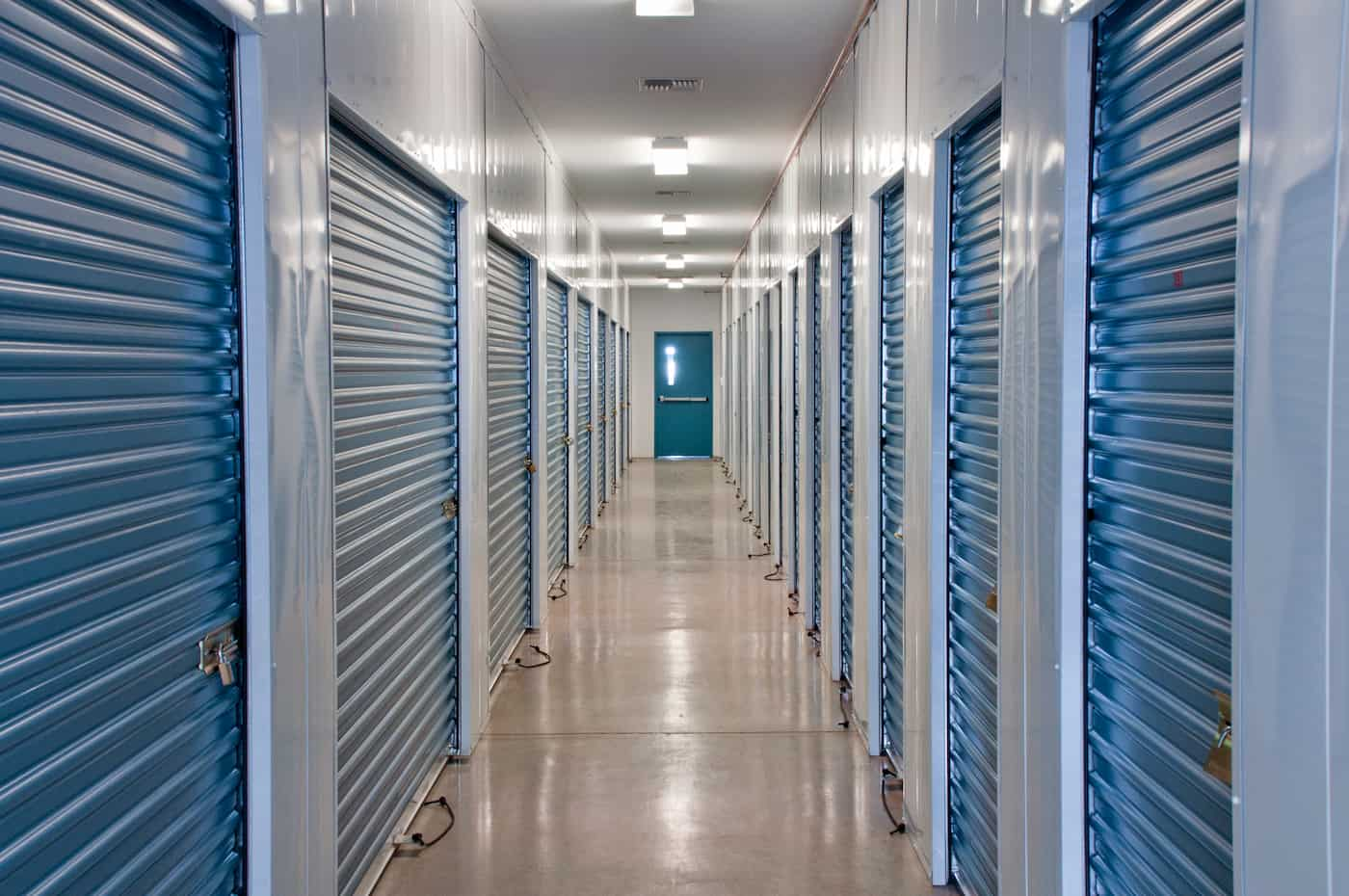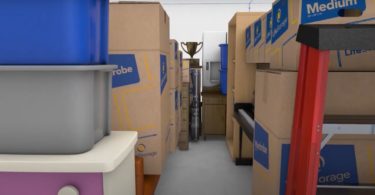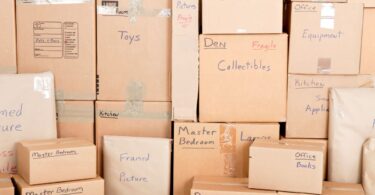
Whenever you’re spending your hard-earned cash on something, it’s only natural to want to get the most for your money. That could be something as big as negotiating interest rates before putting a down payment on a house. Or, it might be something as small and mundane as strategically selecting the most full bag of chips at the grocery store. (Is there anything worse than a bad chip-to-air ratio?)
The same applies to shopping for an affordable self-storage unit in your area. Without compromising quality, of course, the average person is typically looking for storage unit deals to take advantage of. But a quick search on Google doesn’t always yield the best results, save for the occasional Groupon or limited-time seasonal sale. You might be left wondering: What is the best way to save money on a storage unit? Are storage unit coupons a thing? Do I have to pay the exact rate listed on a storage facility’s website, or is there a way to lower my monthly cost?
Related: How to Move to a Different State With or Without Money
How to Save Money on a Storage Unit
If you’re brand new to the world of self-storage, you may not realize there are certain things you can do to cut costs before, during, and after signing a lease agreement. (Even if no obvious storage unit deals or discounts are publicly available!) Let’s review some of the smartest ways to squeeze every cent out of your storage space.
1. Take advantage of one of these storage deals.
The first step in securing the best storage unit deals is simply seeking them out. You may be able to find some advertised online, but it’s also a good idea to check with your provider in case there are discounts you’re eligible for that you don’t even know about. (Sometimes, it pays to ask!)
In general, keep an eye out for these storage unit discounts:
- Special rates and one-off discounts. Make sure you ask your provider if there are any current special storage rates you can take advantage of. It’s common for major storage companies to offer storage unit deals, such as a free month on a storage rental.
- Military discounts. Cities near military bases can see up to 95 percent rental occupancy from active military members. If you are a veteran or in active service, remember to flash your military I.D. when renting. You may be entitled to anywhere from 10% to 30% discounts off rental rates, free months of rent, gift certificates, free use of moving trucks, ‘one-dollar move-ins,’ no rent increases while deployed overseas, waiver of security deposits, administration fees, etc.
- Save money by renting online. Booking a storage unit online can often be more convenient than dealing with everything in person. (Especially if you’re moving to a new city or out of state!) Even better: Some storage facilities even offer exclusive discounts for booking online.

What time of year are storage units the cheapest?
Winter is often considered the “slow season” in the storage industry, meaning fewer people are inquiring about renting storage units during this time. (Who wants to trudge through the snow to move into a new apartment or lug their belongings into storage in sub-zero temperatures?)
While that doesn’t necessarily mean that monthly rental prices will be any different than in the spring, summer, or fall months, storage facilities may offer certain promotions and seasonal discounts to try to make up for the lack of business. Nothing is guaranteed, of course, but with some extra deals tacked on, you may be able to lower your overall cost if you rent during the wintertime!
Related: 9 Tips to Help Make Moving in Winter Months Less Annoying
2. Save money by knowing how much space you need.
When you become a self-storage renter, you pay for every square foot of space in your unit. Whether you are a business using commercial storage or an average person wanting to declutter their home, choosing the right amount of space for your goals is crucial. (Why pay for what you don’t need?)
The most obvious way to go about this is by figuring out the appropriate amount of space you need for your belongings. Our storage space estimator tool can help you visualize different unit sizes based on what you’ll be storing. Or you can also use chalk or painter’s tape to measure out your dimensions in person. Still feeling lost? You can always feel free to chat with a storage facility manager to discuss your personal needs and goals when it comes to renting a storage unit. Their expertise can help you make the right decision for you and your family!
3. Know how to store items without damaging them.
One way storage rentals can end up costing you a ton is if you don’t know how to store your belongings correctly. It can be costly and frustrating to replace items and keepsakes that are broken or damaged in storage. (And that’s if these items can even be fixed or replaced in the first place!) Luckily, this expense can easily be avoided altogether with proper planning and storage unit packing strategies.
Even after you’ve selected the best storage unit size for you, it’s also possible to save space (and money!) through efficient organization. Remember these three key factors when packing your rental:
- Create and maintain aisles. This is something that is easily forgotten in the urgency of unpacking! Creating aisles within your unit keeps everything easily accessible.
- Label all of your boxes or containers on both sides. That way, no matter which way you approach them, you’ll always be clear on what’s inside. (No more wasting time digging into every box only to find what you’re looking for in the very last one!)
- Make sure your boxes or containers are sturdy and made for long-term storage. If you’re looking to save money, invest in boxes or totes that will hold up and protect your stuff over time. The banana boxes from the local produce department do not count. (and they may carry bugs!) Use pallets or another type of makeshift flooring, if possible, to keep those boxes off the concrete floor.
Have something specific you want to store? Search our how-to-store guides for more advice.
Related: How to Organize a Self Storage Unit for Frequent Access
4. Skip unnecessary amenities
Similar to knowing how to pack a storage unit, it also helps to know what amenities are necessary for what you’re trying to store. Today, storage units come equipped with all sorts of extras you can take advantage of, from climate and temperature-controlled environments to drive-up access (great for unloading large pieces of equipment) or 24-hour access. The key is zeroing in on which of these amenities you actually need, and which ones you can live without.
For example, items like musical instruments, electronics, and wood furniture can be warped, cracked, and irreversibly damaged when stored in a non-climate-controlled environment. On the other hand, if you’re only planning on storing some excess office documents or clothing items, you probably don’t need to spring for this added expense. Packing them in the appropriate boxes or totes should work just fine.
Related: The Benefits of Climate Controlled Storage
5. Shop around before committing
In case this wasn’t already obvious, you should consider checking out a variety of storage unit facilities in your area before signing a lease agreement. If you’re not in a time crunch, it may also be a good idea to tour the facility beforehand, too. Storage unit dimensions can vary based on the facility’s layout, and you can often get a better feel for the location and amenities when you’re visiting in person.
Plus, during an in-person visit, you can also ask the storage facility manager or a staff member if there are any current deals or promotions running that you can take advantage of. Every facility is different and may offer certain discounts or price-matching that other businesses don’t.

How Do You Find Storage Unit Deals?
Like all things worth doing, finding the right storage unit requires time, money, and strategy. Put in the work, and you’ll be able to get the best deal possible on your extra storage space. Search for cheap self storage rentals near you!
Editor’s Note: Originally published on November 3rd, 2015; updated on June 29th, 2018 & July 11th, 2023.
Read These Articles Next:







